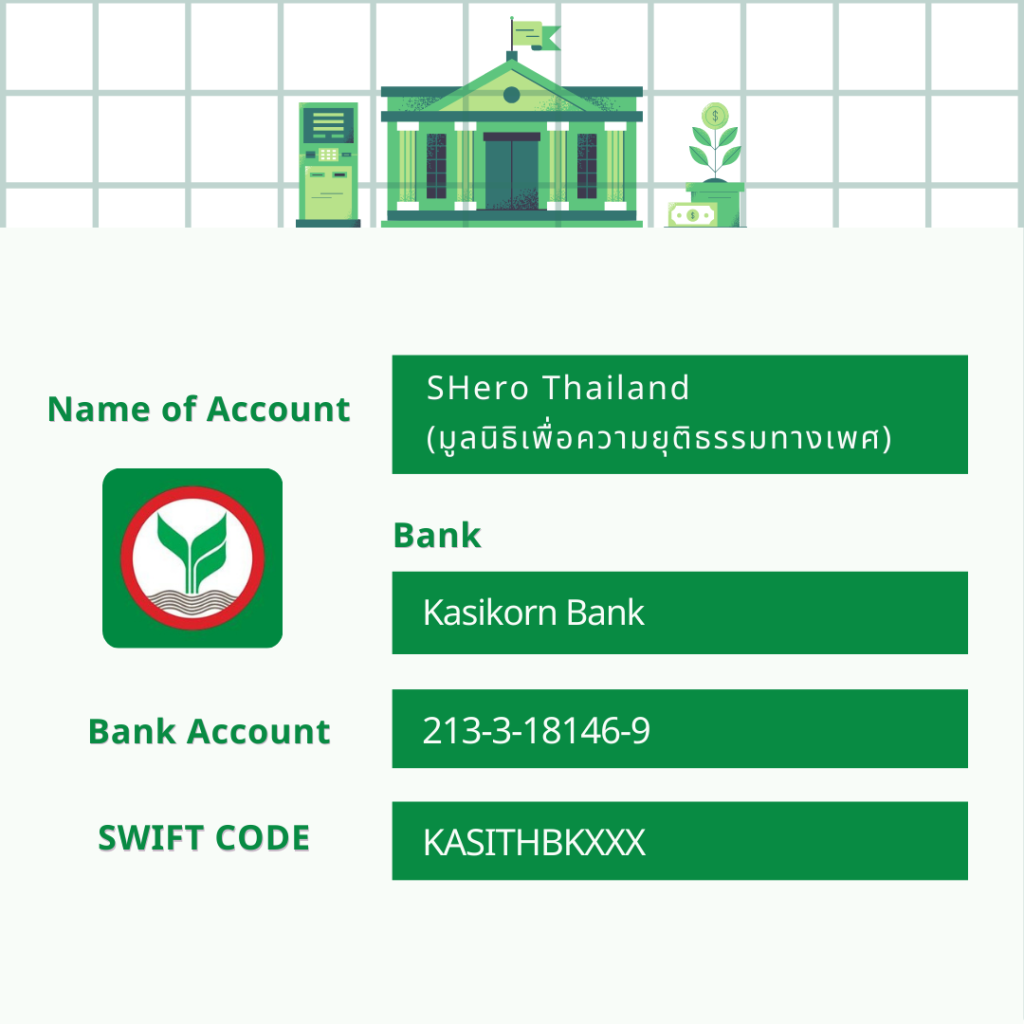

Thailand
Individual Submission to the UN Universal Periodic Review
39th Session of the Working Group
Women who are subjected to male violence in intimate relationships
Introduction
1. SHero, pronounced as ‘she-ro’, is a civil society organization founded in 2016 that works for the de-normalization of violence culture in Thailand. We provide pro bono legal assistance and counseling for gender-based violence survivors, build capacity for youth to create changes in their own community, and advocate for the better protection of women’s human rights. We have worked voluntarily and provided legal, emotional and emergency support to 329 cases of GBV. Most of the complaints reported to SHero addressed the irresponsiveness, insensitivity, victim-blaming attitude, and inactive of the law enforcement. Moreover, to date we have trained 75 youth leaders, involved 17 youth volunteers in policy advocacy and provided workshops and training for over 2,750 youth and survivors. Discrimination against women have been reported to SHero through these activities.
2. Male violence against women has been an unresolved issue since the 2nd Cycle of the Universal Periodic Review (UPR). Ruling by Prayuth Chan-o-cha’s military government since 2014, Thailand prioritize its national funds, governmental programs, and task forces towards the matter of national security and the protection of military regime as well as the monarchy. The Coalition of Women and LBTI Women in Thailand on CEDAW reported that “Since the military coup in May 2014, our struggle for justice and equality for women in Thailand has become even more difficult due to increasing restrictions of fundamental freedoms and ongoing discrimination.” Drastic funding cuts in the Governmental women protection programmes plus the victim-blaming attitudes which deep-rooted in patriarchal institutions resulted in the insensitive and inactive response to gender-based violence cases, particularly domestic violence cases. Consequently, domestic violence against women continues to be unaddressed and women often are manipulated to go through illegitimated mediation procedure mostly without legal remedies or compensation fees.
3. While reporting domestic violence as a human rights abuse committed by State has its practical and theoretical limitations considering the challenge to prove a pattern of violence and to demonstrate a systematic failure by Thailand to afford women equal protection of the law. It is crucial to have the domestic violence issue, which has historically been considered as private and marginal to human rights issues, to be highlighted in the national and international human rights mechanism.
4. This submission focuses on human rights of women who are subjected to domestic violence, analyzes Thailand’s progress on recommendations made by member states during the UPR 2nd Cycle and make recommendations for the 3rd Cycle. It will illustrate issues related to the systematic oppression and human rights violation against women who are subjected to domestic violence reinforced by societal, legal and political intuitions.

Read our submission here:
Thank you for visiting SHero Thailand.
As we mark our 9th year as a 100% volunteer-run organization, we have reached our operational limits. We’re actively seeking additional resources to ensure sustainability and are currently focusing on supporting our existing clients.
At this time, we are unable to offer active responses or accept new legal consultation requests due to our limited capacity.
In Case of Emergencies:
Thai Police: Call 191
Tourist Police: Call 1155 (available 24/7 and offer English-speaking support)
For Further Assistance:
Women and Men Progressive Movement
Email: info@wmp.or.th
Phone: 02-513-2889
Website: https://www.wmp.or.th/contact
We sincerely appreciate your understanding and are committed to resuming our services as soon as possible.
Warm regards,
SHero Team
